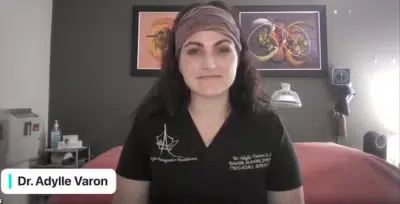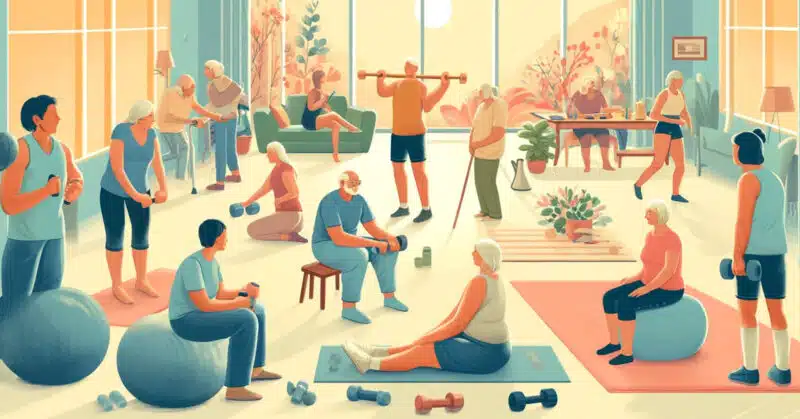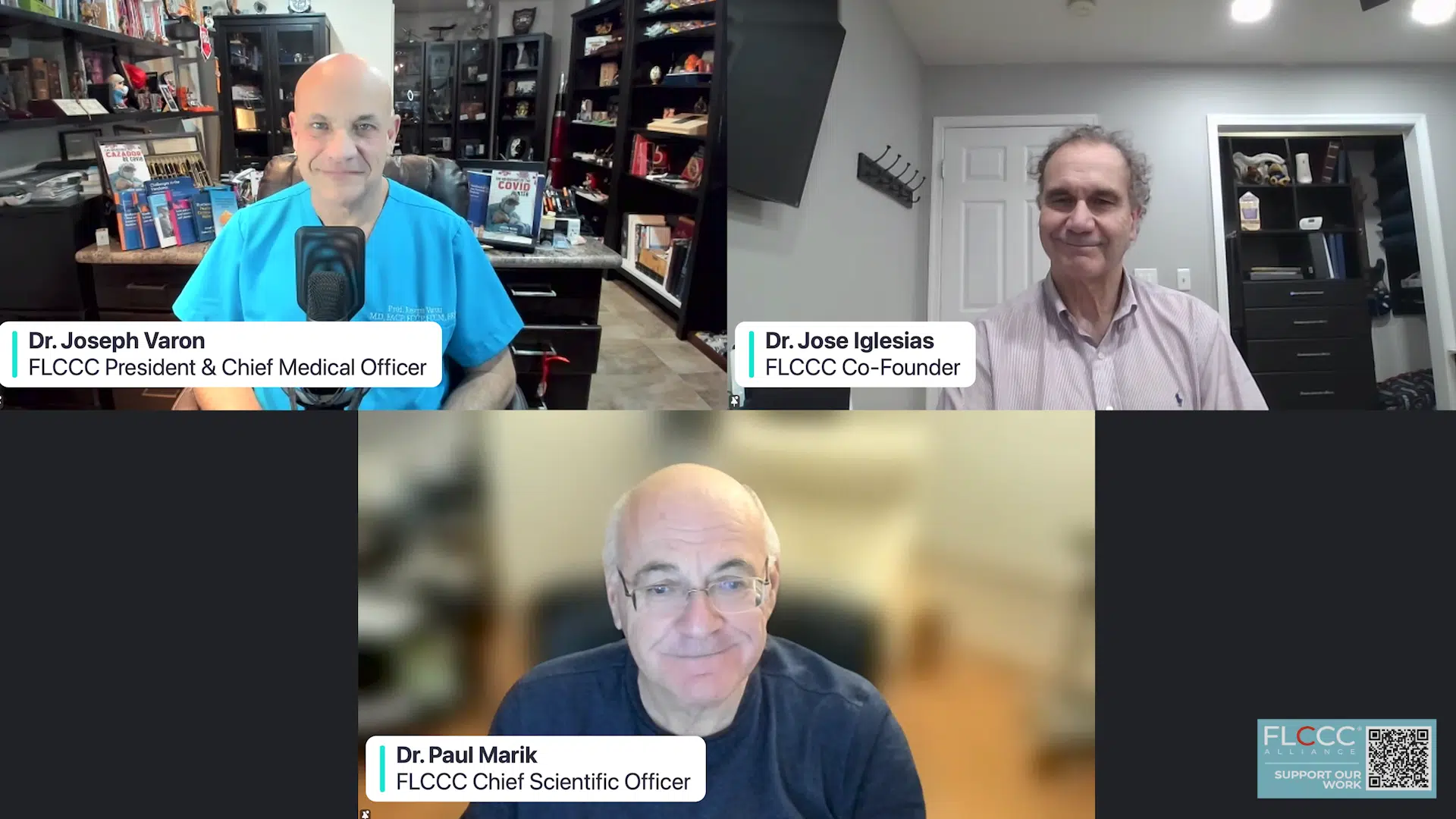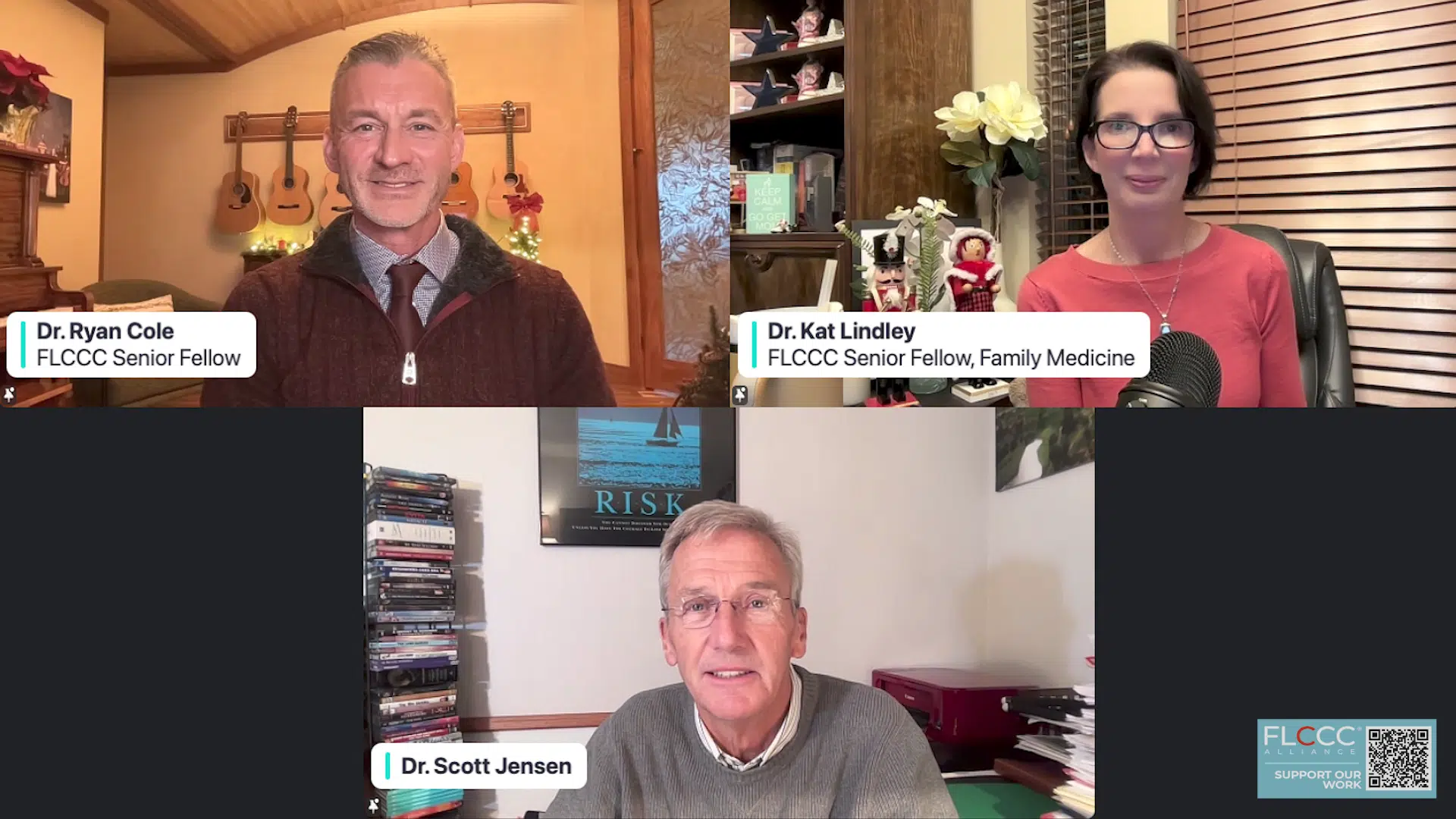'The Important Role of Testosterone In Men's Health'
— FLCCC Alliance (@Honest_Medicine) November 21, 2024
On this week's webinar, we were joined by FLCCC Senior Fellows, host Dr. Ryan Cole (@drcole12) and Dr. @JohnLittellMD, and special guests Dr. Adylle Varon and Dr. @MDMichaelTurner, for an important discussion covering a range… pic.twitter.com/n4HmLNgl5f
Speakers: Dr. Ryan Cole, Dr. John Littell, Dr. Michael Turner, Dr. Adylle Varon
“I guess the question is, ‘How often do men ask about their health?'” — Dr. Ryan Cole
There’s no denying it—testosterone replacement therapy is having a moment. The promise of becoming faster, stronger, and more resilient has men everywhere lining up, hoping for the hormonal cheat code to peak performance. But is putting all your eggs in the testosterone basket really the secret to better health?
In the above FLCCC webinar, four doctors tackled the testosterone trend head-on, exploring its benefits, pitfalls, and the bigger picture of men’s health. Testosterone is important, but it’s not the whole story. True health isn’t about maxing out one hormone—it’s about balance, both physically and mentally.
But, let’s face it: men tend to struggle with balance. And of course, most men aren’t exactly lining up to chat about their health. Ignoring the warning signs might feel easier now, but as these doctors point out, the clock’s ticking. Whether you’re chasing an edge or just want to feel like yourself again, stick around.
Meet the Men’s Health Experts
Our experts come from four distinct practices, each bringing their own mindset. The result was very enlightening! Before we dive into testosterone, let’s meet this outstanding group.
Dr. John Littell
FLCCC Senior Fellow, Dr. John Littell, MD, is a board-certified family physician with over three decades of experience in holistic patient care. A U.S. Army Medical Corps veteran awarded the Meritorious Service Medal, he has dedicated his career to treating individuals from newborns to those in their final stages of life. Dr. Littell emphasizes the importance of balancing hormones naturally and is cautious about the widespread use of testosterone therapy without considering underlying health issues.
Dr. Adylle Varon
Ambrozia Integrative Healthcare
At Ambrozia Integrative Healthcare, Dr. Adylle Varon dedicates her practice to enhancing people’s health through Traditional Chinese Medicine (TCM). With a Doctorate in Acupuncture and Oriental Medicine, she focuses on a holistic approach to men’s health, considering not just symptoms but the overall constitution of her patients. Dr. Varon believes in the body’s ability to tell a story far different from what patients might report, using diagnostic measures unique to TCM.
Dr. Michael Turner
Michael Turner, MD, is a graduate of Stanford University, Harvard Medical School, and The Mayo Clinic. As an Integrative Medicine physician and CEO of his national concierge practice, he develops personalized approaches to help people become the healthiest versions of themselves. Known for his empathy and holistic approach, Dr. Turner has been treating men with low testosterone levels, focusing on both natural interventions and testosterone replacement therapy when appropriate.
Precautions on Testosterone and Men’s Health
While testosterone therapy has its perks, it’s not a magic fix for men’s health—and it doesn’t come without risks.
“One of the risks of testosterone therapy in men, and testosterone in general, is the risk of prostate cancer. Just as we talk about female cancers being estrogen-driven, in males, prostate cancer is testosterone-fed.” — Dr. John Littell
Dr. Littell urges men to think twice before turning to testosterone therapy as a quick way to “feel more manly.” Pumping up testosterone without addressing the root causes of health issues can lead to side effects, including an increased risk of prostate cancer.
“There’s so much more to men’s health than testosterone, especially not just exogenous right away. There’s a broader question of health that needs to be discussed—stress, cardiovascular health, sleep.” — Dr. Michael Turner
Dr. Turner highlights a common oversight: testosterone is just one piece of the puzzle. Ignoring key factors like stress, sleep, and heart health can lead to half-baked solutions that don’t address the real problem.
“It’s a mindset problem more than anything. So many balls in the air that they’re not taking time to exercise.” — Dr. Michael Turner
For many men, the hustle of daily life sidelines simple, but powerful habits like regular exercise—a natural and effective way to boost testosterone.
“Testosterone isn’t the only answer. Just enough, not too much. That Goldilocks concept of medicine—just because a little is good doesn’t mean a lot is better.” — Dr. Ryan Cole
Dr. Cole emphasizes moderation, warning that high testosterone levels can cause harm. Like any treatment, testosterone replacement therapy works best in balance.
Symptoms of Low Testosterone Levels
Low testosterone levels, also known as testosterone deficiency, can manifest in various ways. Common symptoms of low testosterone include:
- Reduced sex drive: A noticeable decrease in libido.
- Erectile dysfunction: Difficulty achieving or maintaining an erection.
- Fatigue: Persistent tiredness despite adequate rest.
- Loss of muscle mass: Decreased strength and muscle tone.
- Mood changes: Feelings of depression or irritability.
- Increased body fat: Especially around the abdomen.
- Decreased bone density: Leading to osteoporosis.
If these symptoms sound familiar, it might be time to check in with a healthcare provider to assess your testosterone levels.
What Are the Ideal Testosterone Levels?
Every guy wants to know: what’s the magic number?
The answer? It varies. Testosterone levels depend on factors like age, health, and individual biology. Dr. Ryan Cole notes that normal levels typically range from 200 to 1,200 ng/dL.
Dr. Michael Turner advises focusing on symptoms first:
“If your guy has symptoms like feeling tired, gassing out in the gym, not making gains, poor sex drive, poor sexual function, feeling listless, and you go get that testosterone number, and let’s say it’s 350 or less, I can guarantee that’s testosterone deficiency… he will feel better if we get that number up to 800 or 900.”
Ultimately, the ideal level is the one that improves your symptoms without tipping into the risks of too much testosterone.
What Are the Benefits of Testosterone Replacement Therapy?
Testosterone replacement therapy (TRT) can offer several benefits for men with low testosterone levels:
- Improved sexual function: Increased libido and better erectile function.
- Increased muscle mass: Enhanced strength and physical performance.
- Better mood and mental health: Reduced feelings of depression and improved cognitive function.
- Increased bone density: Strengthening bones and reducing the risk of fractures.
- Improved energy levels: Reduced fatigue and increased vitality.
That said, TRT isn’t for everyone. A knowledgeable healthcare provider can help you weigh the pros and cons and decide if it’s the right move.
Can You Elevate Testosterone Naturally?
Before jumping into testosterone supplementation or treatment, Dr. Turner suggests guys to consider these natural ways to boost their body’s own testosterone production.
1. Sleep
“There was a study done where they compared guys who got 7-8 hours of sleep compared to those who get 5. And the morning testosterone in men who get 5 hours is about 30% lower.” — Dr. Michael Turner
Sleep isn’t just restorative—it’s essential for testosterone production. During deep sleep, your body kicks hormone production, including testosterone, into high gear. Skimping on sleep can cause testosterone levels to plummet.
Dr. Turner recommends using a sleep tracker to monitor your deep sleep, aiming for about an hour of slow-wave sleep per night. Cutting out alcohol before bed can also improve sleep quality, which means better testosterone production.
2. Exercise
“Exercise and testosterone levels—that’s a positive feedback loop. When you do exercise, your body responds with a surge of growth hormone, with a surge of testosterone immediately.” — Dr. Michael Turner
Exercise is a testosterone booster on multiple levels. Strength training and high-intensity interval training (HIIT) are particularly effective at naturally increasing testosterone levels. Plus, regular physical activity improves overall health, keeping your hormones balanced.
FLCCC Fitness and Strength Training Guide
3. Lose Weight
“When you have abdominal fat, that carries a high level of an enzyme called aromatase, which depletes testosterone. It takes testosterone and turns it into estrogen.” — Dr. Michael Turner
Excess weight, especially belly fat, is a testosterone killer. Abdominal fat contains high levels of aromatase, an enzyme that converts testosterone into estrogen. Shedding extra pounds, particularly around the waist, can free up testosterone and restore balance to your hormones.
4. Get Outside
Dr. Ryan Cole highlights the power of sunlight:
“Getting outside plays so many different roles—not just vitamin D, but near-infrared light plays such a role in our metabolic pathways as well. So getting natural sunshine is underused and so free and so simple, and it can influence mood, hormones, and mitochondrial health.”
Sunlight is one of the simplest and most effective ways to support testosterone production. Natural light boosts vitamin D, which is linked to higher testosterone levels and improved mood, energy, and overall health. Near-infrared light from the sun also supports key metabolic processes, making outdoor time a natural testosterone ally.
What Are Some Testosterone Supplements?
Dr. Turner recommends several supplements that can support testosterone levels:
- Boron: “Ten milligrams of boron increases free testosterone levels.” Boron can help increase bioavailable testosterone in the bloodstream.
- Magnesium: “Magnesium lowers the sex hormone-binding globulin levels.” This can result in more active testosterone available for the body’s use.
- Omega-3 Fatty Acids: They lower sex hormone-binding globulin and have additional benefits for brain health and anti-inflammatory effects.
- Tongkat Ali: “It has a lot of data about growth hormone and testosterone.” This herbal supplement may boost testosterone production.
- Fenugreek: “Boosts testosterone and does some great things for blood sugar.” Fenugreek is known to support hormone levels and metabolic health.
While it can be tempting to take the DIY approach, this is an example of a time when it’s important to consult a healthcare provider to ensure they’re appropriate for you.
From A to Zinc: FLCCC Nutrient Guide
Testosterone from the Perspective of Traditional Chinese Medicine
Dr. Adylle Varon provides a fresh perspective on testosterone and men’s health through Traditional Chinese Medicine (TCM):
“In our clinic, I’m usually the last person a patient wants to see when it comes to men. We usually see patients that have seen a couple dozen doctors before coming into our clinic. You see me for 90 minutes for your first consult, and we talk about everything under the sun.”
Dr. Varon explains that TCM doesn’t just treat symptoms—it focuses on the whole person. By assessing the body’s energy flow, or Chi, and using diagnostic tools like pulse and tongue analysis, TCM practitioners uncover the deeper imbalances that may be impacting testosterone levels and overall health.
“The body can tell a story far different than what the patient is reporting. The pulses will tell us what the Chi—the energy—is doing in sections of the body. If we start seeing there’s a little bit more of a stagnation in the middle part, that drives me to a set of questions related to that region.”
This approach goes beyond lab results. By reading the body’s energy map, TCM identifies blockages, stagnation, or deficiencies that may disrupt hormonal balance.
For men struggling with low testosterone or related issues, TCM provides a holistic path to healing, prioritizing harmony and balance within the body rather than focusing solely on hormone levels.
What Is the Best Way to Do Testosterone Therapy?
If natural methods haven’t done the trick and your testosterone levels remain low, testosterone replacement therapy (TRT) could be an option. However, choosing the right approach depends on your age, fertility goals, and overall health.
“The first question is how young or old is a guy, and what’s his interest in having children further? If we give you exogenous testosterone, it acts like male birth control. Your sperm count will drop because of the feedback loops that are going on.” — Dr. Michael Turner
For younger men who want to preserve fertility, Dr. Turner recommends medications like Clomid:
“I prefer Clomid. It stimulates your brain to ramp up the internal circuitry of testosterone production. So what if we could tickle your brain a little bit every night, and it would ramp up that whole wind-up that we talked about resulting in morning testosterone peak? Clomid does that.”
Clomid works by boosting your body’s natural testosterone production without interfering with sperm count, making it ideal for men looking to maintain fertility.
For older men or those who don’t have concerns about fertility, testosterone therapy options often include injections or topical creams. However, Dr. Turner strongly advises against pellets:
“I’m not a fan of pellets either. They get the levels too high; it’s hard to adjust. They’re a big mess. It’s typically an overhyped marketing concept in my mind.”
Pellets can create unstable testosterone levels and make adjustments difficult, which can lead to more problems than solutions.
The key to successful TRT is working with an experienced healthcare provider who can tailor the treatment to your individual needs. The right therapy should improve your symptoms while minimizing risks and side effects.
Stay Tuned! More FLCCC Men’s Health on the Horizon
Testosterone plays a significant role in men’s physical and mental health, but it’s not the only factor. A holistic approach that includes lifestyle changes, natural supplements, and medical interventions when necessary can lead to better outcomes.
Many men neglect their health, often due to busy schedules and a reluctance to seek help. However, addressing issues like low testosterone levels, stress, sleep, and diet is essential for long-term well-being.
Stay tuned for more men’s health topics, as we continue to explore ways to help men lead healthier, more fulfilling lives.
More From the Frontline of Honest Medicine
- Sign Up for the Next Conference: FLCCC Conference Registration
- VITAE Survey: Participate in the VITAE Survey
- Whole Body Health Episode 31: What is Fucoidan? Benefits & Uses
- Dr. Chris Martenson Global Insights: Breaking News: Whistleblower Leak Exposes US-German Interference in COVID-19 Lockdowns & Mandates
- Dr. Jessica Rose Global Insights: Red Flags: New Self-Amplifying RNA Technology










